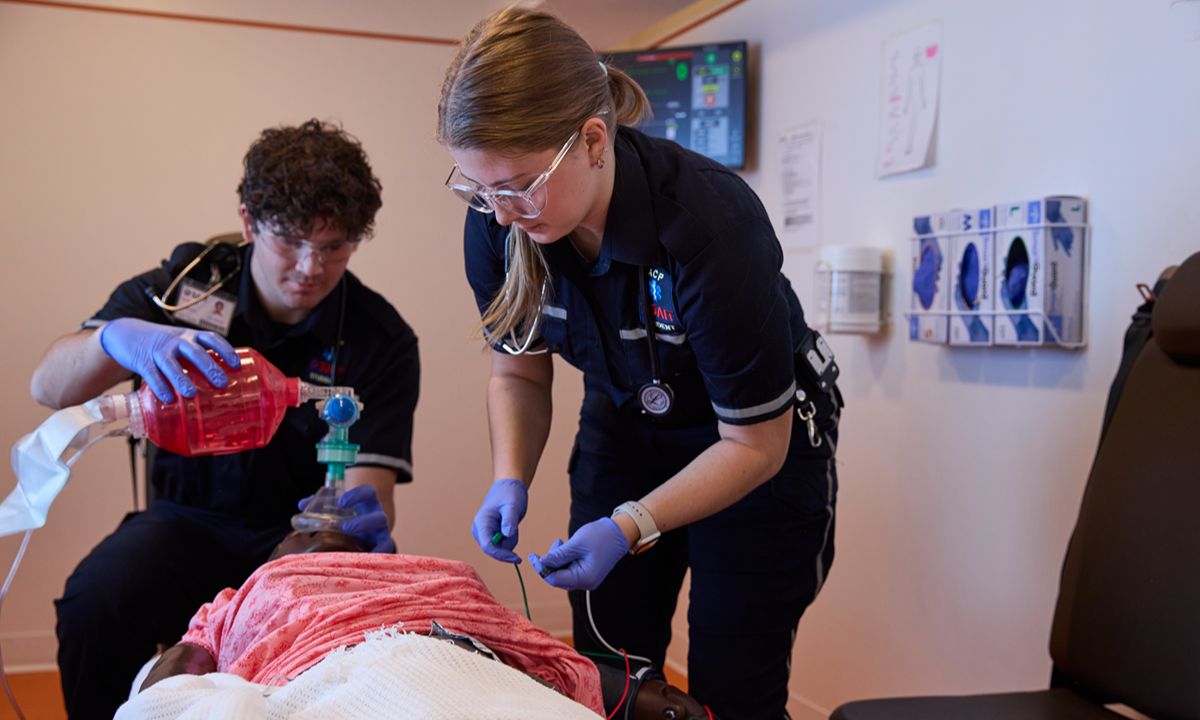Why preceptorship is valuable
You'll receive many benefits while on your practicum, training and working alongside a preceptor with:
- participation in a variety of settings with patients and equipment
- experience of the "real world" of practice
- socialization into the profession
- development of competence and confidence
- investigation into employment opportunities
- beginning to transition from the role of a student to a graduate to a new employee.
My preceptor was very approachable. If you had a question, she would have an answer for you and not make it feel like it was something you should know. Also, if there was something she couldn't answer, she had no problem admitting that and then helping you find out.
SAIT student
School of Health and Public Safety
My practicum, thus far, has been a really good experience, and I have been treated very kindly; I was even made to feel like part of the team rather than 'the student.' I was also encouraged to express whether or not a situation or schedule was working for me. They were very flexible and accommodating, which was much appreciated!
SAIT student
School of Health and Public Safety
Faculty also benefit from liaising with preceptors and practicum students by:
- networking with a variety of preceptors and health care agencies
- keeping up to date on the changes in the profession through the preceptors
- taking advantage of opportunities to facilitate and encourage preceptor and student growth
- gaining an understanding of health care delivery systems in the community
- building ongoing relationships with health care agencies in the community.
The value of preceptorship is to take you back to the time when you were a student. It re-focuses our attention to that of the learner, not the seasoned veteran health care professional. Through our preceptor courses, we learn how to transfer our vast amount of knowledge and experience to those students who will someday take our places in the healthcare field. I feel that I would not have been confident to teach today's students at SAIT without my preceptor courses behind me.
Former preceptor
Current SAIT instructor, School of Health and Public Safety
As a SAIT faculty member, I have the opportunity to liaise with the preceptors, which allows me to keep up with current changes in my profession and to build relationships through preceptor meetings and training sessions. By working closely with the practicum sites, I have the chance to see how the preceptor is encouraging and developing the learner to become the next generation of health care professionals, which is exciting.
SAIT Instructor
School of Health and Public Safety
Clinical partners
While on practicum, students in our programs work with experienced professionals in various disciplines.
These partners currently include:
- Alberta Health Services
- Alberta Precision Labs
- BC Interior Health Authority
- Beam Radiology
- Blair, Stubbs & Associates
- Canada Diagnostic Centres
- Central Alberta Medical Imaging Services
- Central Health Authority Newfoundland
- Dynalife Labs
- Eastern Regional Integrated Health Authority Newfoundland
- EFW Radiology
- Mayfair
- Medical Imaging Consultants
- Radiology Associates
- Saskatchewan Health Authority
- Shared Health Manitoba
- Western Health Authority Newfoundland
- Winnipeg Regional Health Authority
- Yukon Health
We also work with:
- diagnostic centres and medical laboratories throughout Canada
- fire, ambulance and emergency medical services in rural and urban Alberta communities
- fitness and community recreation facilities
- community pharmacies
- private dentists and physicians throughout Alberta.
Become a preceptor
Are you interested in becoming a preceptor or clinical partner with the School of Health and Public Safety?
Contact us
Have questions? We're here to help! Connect with our experienced team of advisors to get the answers you need.
School of Health and Public Safety
Senator Burns Building, SAIT Main Campus
-
Email - hps.info@sait.ca
-
Monday - Friday | 9 am - 4pm

Oki, Âba wathtech, Danit'ada, Tawnshi, Hello.
SAIT is located on the traditional territories of the Niitsitapi (Blackfoot) and the people of Treaty 7 which includes the Siksika, the Piikani, the Kainai, the Tsuut’ina and the Îyârhe Nakoda of Bearspaw, Chiniki and Goodstoney.
We are situated in an area the Blackfoot tribes traditionally called Moh’kinsstis, where the Bow River meets the Elbow River. We now call it the city of Calgary, which is also home to the Métis Nation of Alberta.
